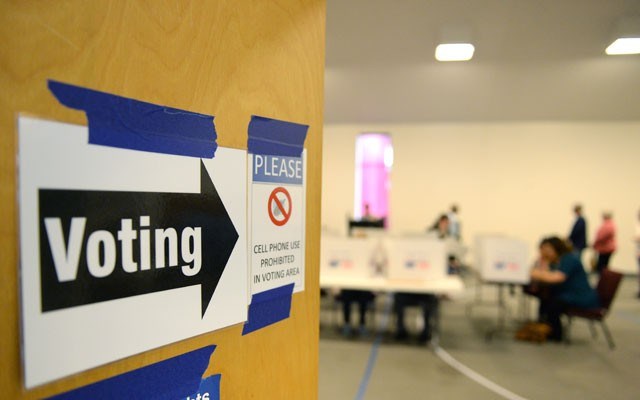It is really great to see the interest in this upcoming byelection for Whistler.
Already, 385 people have voted in advance polls. That may not seem like many on the face of it, but traditionally, less than 20 per cent of voters turn out to vote early in an election and that plummets to six per cent for byelections.
In 2014, voter turnout for Whistler's municipal election was 2,303 — 27.3 per cent — about half the number of ballots cast in 2011's contentious election.
As you no doubt know by now, there are seven people vying for the one seat on council made vacant by the sad passing of Councillor Andrée Janyk earlier this year.
Our candidates in alphabetical order are: Steve Andrews, Kalee Eder, Cathy Jewett, Janice Lloyd, Alon Rimon, Kate Roddick and Dawn Titus.
There has been plenty of healthy discussion in social media forums, at the all-candidates debate and in the aisles of Nesters about who should be elected, what skills each person might bring to the table, and so on.
It's obvious that Whistlerites have reached the end of their collective rope when it comes to some of the pressing issues like housing. And voters have been clamouring for information from each candidate about how, exactly, they are going to deal with these issues.
No doubt some voters are feeling very frustrated that candidates don't have all the answers — but that is an unrealistic expectation at this point. After all, a host of minds both elected, staff at municipal hall, and other stakeholders in the community are still working on solutions for the resort.
As you head to the polls, consider the candidates running and carefully think about their broad experiences, their track record with consensus building, their ability to think creatively and to represent all residents, businesses, and to some extent, the visitors too.
Everyone has his or her own subjective ideas and agendas when it comes to taking office, and no doubt that plays a role in getting elected. But the only way Whistler can continue to have success is if those elected all work together in the best interests of the community and not just to further their own goals — or those of a third party or issue.
And it is best if those sitting at the table are not in a position where they might be subject to outside influences, or even suffer the perceived appearance of such influence.
But let's be realistic: in small towns, it is almost impossible not to rub up against conflict of interest at some time. But these need to be few and far between.
And just for clarification, this is what Section 100 of the Local Government Act has to say about conflict of interest: "(Disclosure of conflict) of the Community Charter requires a council member to declare a conflict of interest if he or she has a direct or indirect pecuniary interest in a matter under consideration.
"A member must also declare a conflict if he or she has some other, non-pecuniary type of interest that places the person in a conflict position (e.g., bias)."
This is a council that needs to continue to pursue strategic thinking as the resort heads towards a future where affordability, our Official Community Plan, Whistler 2020, the future of the RMI money, and the continuation of village refurbishment are on the horizon — to name just a few of the issues the municipality is dealing with.
Municipal politics is a different beast than provincial and federal politics. At these two senior levels, voters, to some extent, expect those they are electing to treat the job as a full-time commitment — to embrace it as a career choice in fact.
At the municipal level, while voters expect candidates to be committed to the job, it is not seen as a career. It is a civic duty — a post one takes on to make the community we all live in stronger. (Let me say here a heartfelt thank-you to all those who ran for council. Successful or not, stepping forward in the hopes of making a Whistler a better place is to be commended.)
Since this council took office, several major reports have been developed and brought before it in various stages — the Council Action Plan, the Corporate Plan, the Learning and Education Report, the Economic Partnership Initiative Reports, the Recreation and Leisure Master Plan, and Whistler Village 3.0, along with financial plans and reports, and more. We can expect to see more of this, and so an ability to absorb and correlate this type of information is also an important skill on today's council.
So as you head to the polls, vote for the candidate who has proven to you that they can work well with others and put the health of our community first.




